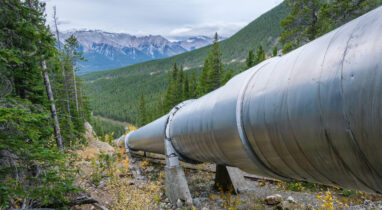The announcement today that a majority of Canadian provinces have proposed industrial carbon pricing systems that meet federal standards could be good news for Canadian industry, the Canadian economy, and our climate targets.
“Canadian industry has been calling for greater policy certainty so that they can confidently make big investments in decarbonization,” said Clean Prosperity Executive Director Michael Bernstein.
“Today’s approval of provincial carbon pricing systems locks in the rules of the road for the next five years. If the systems are well designed, they can help industry to accelerate investment in decarbonization.”
Combined with the federal government’s plan to offer contracts for difference as an insurance policy on the carbon price, firms have increasing assurance that federal and provincial governments are committed to effective policy that will grow Canada’s low-carbon economy.
“Canadian industry has been calling for greater policy certainty so that they can confidently make big investments in decarbonization. Today’s approval of provincial carbon pricing systems locks in the rules of the road for the next five years. If the systems are well designed, they can help industry to accelerate investment in decarbonization.”
Clean Prosperity Executive Director Michael Bernstein
While today’s news is encouraging, provinces still need to reveal the final details about how their industrial carbon pricing systems will work. It’s imperative that these systems are stringent enough to support strong carbon-credit markets, in order to accelerate industrial decarbonization.
As Clean Prosperity and Grant Bishop explained in a recent report on Alberta’s TIER system, if industrial carbon pricing systems aren’t stringent enough, provinces could miss out on opportunities to benefit from growth in jobs and investment in the emerging low-carbon economy — and Canada could miss its emission-reduction targets.
Increasingly, major industrialized countries are adopting climate policy that puts the global economy on track for decarbonization. Most significantly for Canada, the United States’ new Inflation Reduction Act will drive US$1.7 trillion worth of investment in clean technology.
Canada also needs strong climate policy to drive industrial emissions reduction and take advantage of the opportunities for investment, growth, and jobs in the low-carbon economy, as Bernstein argued in a recent Globe and Mail op-ed.
Just as importantly, decarbonizing industry is critical for achieving Canada’s goal of cutting emissions 40-45% by 2030 — en route to net-zero by 2050 — because industry accounts for more than 45% of Canada’s total emissions output.
For more information: media@cleanprosperity.ca




